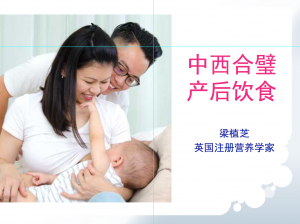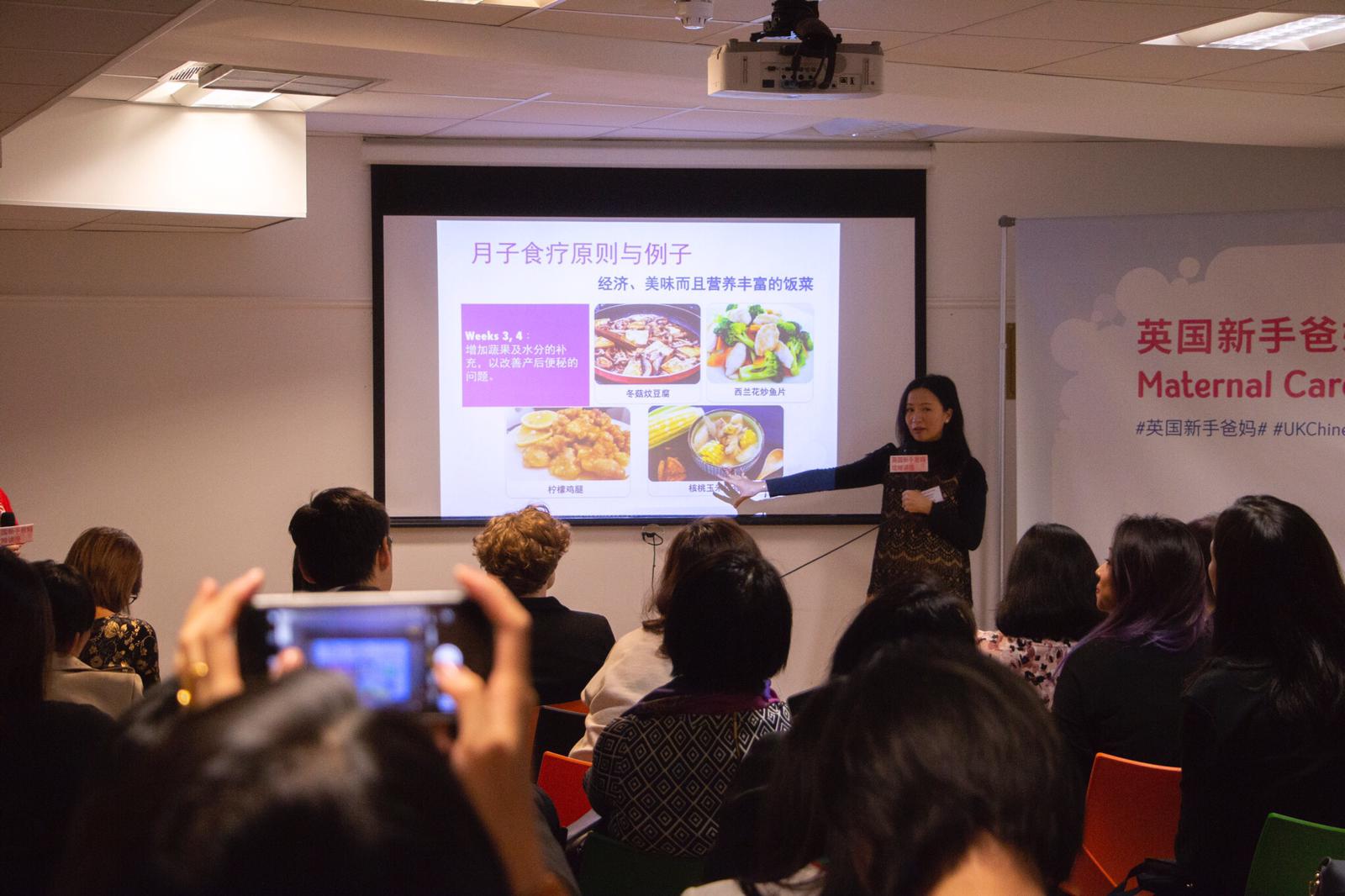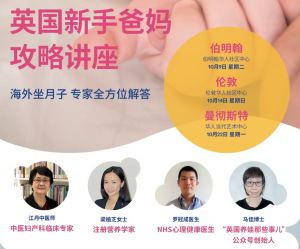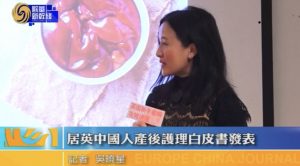Over the last couple of weeks, I was honoured to be invited to speak on a series of workshops on “Maternal care, the Chinese way” in the UK. Comprised of a panel of health professionals including a doctor in Chinese medicine, psychiatrist, a mummy blogger who founded the Weibo platform UK kids and myself a nutritionist, we covered a range of topics, including care for the new mother and baby, how to eat well using accessible ingredients, ways to stay positive and what to expect during and after birth.
This is a cause which speaks further to my research domain. When it comes to promoting health in the UK Chinese community, this is often a much overlooked area. As a ‘minority ethnic group’, many of our cultural concerns in health are dispelled mostly due to claims of superstition, however this treatment of marginalisation can impart significant negative social and emotional outcomes.
When speaking to my fellow Chinese parents, many felt the importance of practising an extent of ‘postnatal confinement’ – or Zuo yuezi – in order to rest and recover after birth.’Confinement’ typically lasts for around 30 days, but can be up to around six weeks if mothers decide to rest a bit longer. It is not recommended to go beyond this as mothers should begin light physical activity to regain their fitness around this time. Often it is after this period of confinement when mothers may start to know their babies, even establishing a broad routine for some.
Contrary to the portrayal in mainstream media, ‘confinement’ does not mean being forcibly refrained indoors and undertake outdated rituals including not taking a shower, washing your hair and not brushing your teeth. Rather it is considered to be a privilege to be able to put your feet up and having domestic duties taken care of. This includes baby care, household duties and eating foods which are nourishing for the mother.
I first got interested in this topic as a food-related enquiry, and was curious to know what mothers ate and why they did so following childbirth. Of course I myself went through this as well after Audrey was born, but was perplexed about some of the claims my mother had on the types and quantities of food and drink I should be consuming, and why I should be taking ginger0infused baths if so, and what happens if I don’t.
As I further explored into this area, I came to realise that the importance for these food rules is not only about adhering in ignorance. The transition into motherhood can be immense emotionally and socially, and food has this power to nurture not only the body, but the mind as well.

Only until one or two generations ago, mothers remained supported by the wider family to cope with this important rite of passage – something which has become more of a rarity now as they move far away to set up their nuclear units. For migrant families overseas, many of them may struggle to come to terms without the help and support especially if they grew up with their own extended family.
These workshops provided a chance for mothers not only to listen to health professionals and network, but importantly to gain a sense of reassurance that these concerns are shared by other members of the community. In those dark, long and exhausting weeks following childbirth, the thought that other mothers are going through a similar experience can offer a light at the end of a tunnel.
—
This project is organised by Comms8 and sponsored by SMA Nutrition UK.
For a white paper on these workshops, visit:
www.smababy.co.uk/Chinese/ChinesePostnatalPracticeWhitepaper(CN).pdf
For press coverage –
A short video from the Birmingham workshop:
A feature on Phoenix TV‘s European channel:
http://pcne.tv/v-26191-?from=singlemessage&isappinstalled=0
A feature on the Chinese – European news platform Huawen‘s website:
www.ihuawen.com/article/index/id/52628/cid/71

A follow-up feature on the BBC Victoria Derbyshire show from my interview last year:
“It reminds me of something as a midwife I hold dear, that it is my job to facilitate whatever a mother finds important”
Midwife Emily Maclean says she wants to help British Chinese women respect the tradition of ‘post-natal confinement’ #VictoriaLIVE pic.twitter.com/E9EF13eaU7
— Victoria Derbyshire (@VictoriaLIVE) October 19, 2018




Hey! Do you know if they make any plugins to help
with Search Engine Optimization? I’m trying to get my website to rank for some
targeted keywords but I’m not seeing very good gains.
If you know of any please share. Kudos! You can read similar text here: Scrapebox List
It’s very interesting! If you need help, look here: ARA Agency
Hey! Do you know if they make any plugins to assist with SEO?
I’m trying to get my blog to rank for some targeted keywords but I’m not seeing very
good gains. If you know of any please share. Thanks! You can read similar blog here: Dobry sklep
I believe what you composed was actually very reasonable.
However, think on this, suppose you composed a catchier title?
I am not saying your information isn’t good, however what if you
added a headline to maybe get folk’s attention? I mean Maternal care, the Chinese way
– Georgine Leung is kinda plain. You should
look at Yahoo’s home page and watch how they create
post headlines to grab people to open the links.
You might try adding a video or a related pic or two to get readers interested about what you’ve
written. In my opinion, it could make your posts a
little livelier. I saw similar here: Najlepszy sklep
Wow, awesome weblog layout! How lengthy have you been blogging for?
you make blogging glance easy. The overall glance of your web site
is wonderful, as smartly as the content material! You can see similar here sklep online